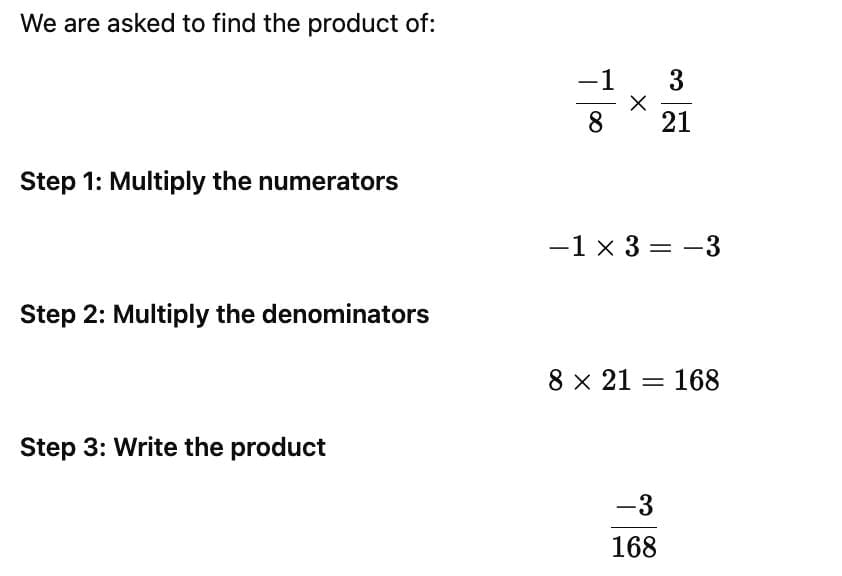Class 8 Exam > Class 8 Tests > Test: Rational Numbers- 1 - Class 8 MCQ
Test: Rational Numbers- 1 - Class 8 MCQ
Test Description
10 Questions MCQ Test - Test: Rational Numbers- 1
Test: Rational Numbers- 1 for Class 8 2025 is part of Class 8 preparation. The Test: Rational Numbers- 1 questions and answers have been prepared
according to the Class 8 exam syllabus.The Test: Rational Numbers- 1 MCQs are made for Class 8 2025 Exam.
Find important definitions, questions, notes, meanings, examples, exercises, MCQs and online tests for Test: Rational Numbers- 1 below.
Solutions of Test: Rational Numbers- 1 questions in English are available as part of our course for Class 8 & Test: Rational Numbers- 1 solutions in
Hindi for Class 8 course.
Download more important topics, notes, lectures and mock test series for Class 8 Exam by signing up for free. Attempt Test: Rational Numbers- 1 | 10 questions in 10 minutes | Mock test for Class 8 preparation | Free important questions MCQ to study for Class 8 Exam | Download free PDF with solutions
Detailed Solution for Test: Rational Numbers- 1 - Question 1
Detailed Solution for Test: Rational Numbers- 1 - Question 2
Detailed Solution for Test: Rational Numbers- 1 - Question 3
Test: Rational Numbers- 1 - Question 4
For any three rational numbers a, b and c, a + (b + c) = __________.
Detailed Solution for Test: Rational Numbers- 1 - Question 4
Test: Rational Numbers- 1 - Question 5
Which of the following (rational number) lies between 0 and -1?
Detailed Solution for Test: Rational Numbers- 1 - Question 5
Test: Rational Numbers- 1 - Question 6
What property allows you to compute 1/3 × (6 × 4/3) as (1/3 × 6) × 4/3?
Detailed Solution for Test: Rational Numbers- 1 - Question 6
Test: Rational Numbers- 1 - Question 7
Which of the following is the correct definition of a rational number?
Detailed Solution for Test: Rational Numbers- 1 - Question 7
Test: Rational Numbers- 1 - Question 8
Which of the following sets contains five rational numbers greater than -2?
Detailed Solution for Test: Rational Numbers- 1 - Question 8
Test: Rational Numbers- 1 - Question 9
Which of the following is the product of (-1/8) and 3/21?
Detailed Solution for Test: Rational Numbers- 1 - Question 9
Detailed Solution for Test: Rational Numbers- 1 - Question 10
Information about Test: Rational Numbers- 1 Page
In this test you can find the Exam questions for Test: Rational Numbers- 1 solved & explained in the simplest way possible.
Besides giving Questions and answers for Test: Rational Numbers- 1, EduRev gives you an ample number of Online tests for practice
Download as PDF















